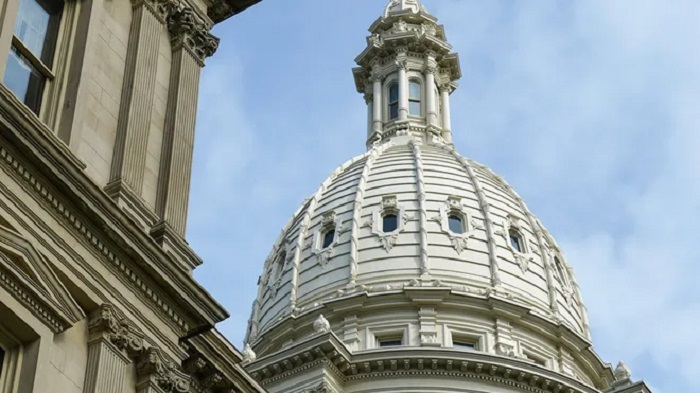Grand Rapids, MI – In a pivotal move late Thursday night, the Michigan Legislature passed significant reforms to the state’s paid sick time and tipped wage laws. Lawmakers from both sides of the political aisle worked to finalize the deal ahead of a looming midnight deadline, with the final vote taking place just after 10:40 p.m.
House Bill 4002, which passed with amendments, blocked the implementation of a 2018 ballot initiative that would have required businesses with 10 or more employees to provide up to 72 hours of paid sick leave per year. Smaller businesses would have been required to provide at least 40 hours. The original initiative, which had been set to go into effect Friday, was created following a Michigan Supreme Court ruling that the 2018 Republican-led Legislature’s changes to paid sick leave laws had been unconstitutional.
The new legislation changes the framework for paid sick leave by delaying the requirement for small businesses to offer at least 40 hours of paid sick time until October 1, 2025. Additionally, the new law allows employees to take up to three consecutive days off without notifying their employer, a provision that will provide workers with more flexibility during health-related emergencies.
The bill was passed with significant bipartisan support, but not without controversy. Senate Minority Leader Aric Nesbitt, a Republican from Porter Township, made a motion to amend the bill during the vote, though it was ultimately rejected. Despite this, the bill passed the Senate in a 26-10 vote and is now set to move to Governor Gretchen Whitmer’s desk for approval.
Nesbitt expressed relief following the vote, describing it as a crucial step to prevent what he referred to as an “economic disaster” for Michigan’s small businesses and restaurant industry. He criticized the Michigan Supreme Court for its earlier decision and praised his colleagues in the Senate and House for working together to protect jobs and businesses.
On the other hand, Senate Majority Leader Winnie Brinks, a Democrat from Grand Rapids, celebrated the passage of the sick time bill as a major win for Michigan workers. In a statement, she called the legislation “a model for other states,” emphasizing the importance of providing workers with a safety net in times of illness or emergency. Brinks said the bill was the result of bipartisan negotiation and would be viewed as a standard for future policies in other states.
Alongside the paid sick time reforms, Senate Bill 8, which preserves the tipped wage for restaurant workers and bartenders, also passed. The bill raises the state’s minimum wage to $15 by 2027 and ensures that tipped workers continue to receive the minimum wage plus tips. The changes have sparked debate, with some restaurant owners warning that the law could lead to price hikes and staff cuts, while some servers expressed concerns about lower earnings due to the changes in the tipped wage system.
Labor groups and progressive Democrats, who had advocated for a higher minimum wage and increased paid sick time, expressed frustration with the pace of the reforms. They argued that the changes fall short of what workers truly need, particularly in light of the pandemic’s impact on the economy.
Meanwhile, the nonprofit group One Fair Wage, which was behind the 2018 ballot initiative, announced plans to gather signatures for a statewide referendum to challenge Senate Bill 8. The organization is mobilizing volunteers to collect the necessary signatures within the legal timeframe to place the issue on the ballot, potentially suspending the wage changes until Michigan voters can weigh in on the matter.
As the reforms head to the governor’s desk, both supporters and critics of the legislation brace for the next phase of debate over labor rights and business regulations in Michigan. The outcome of these legislative moves will have lasting implications for the state’s workforce, with potential ripple effects across the nation as other states consider similar policies.







